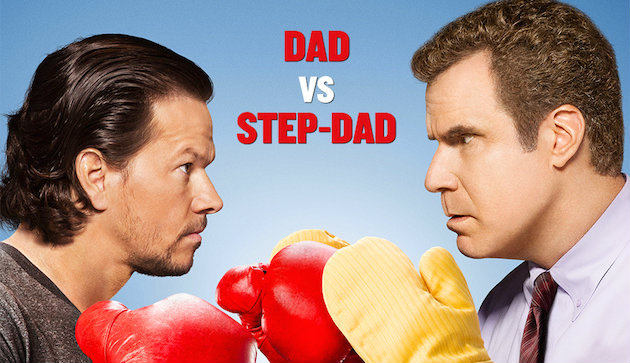Telling us quite a bit about Hollywood and our culture, Paramount Pictures decided to release ‘Daddy’s Home’, a new comedy about a dad and step-dad fighting over a family, on Christmas day. They’ve really got the Christmas spirit going on this year.
Here’s IMDB’s description of the movie:
“A mild-mannered radio executive strives to become the best stepdad to his wife’s two children, but complications ensue when their freewheeling and freeloading real father arrives, forcing him to compete for the affection of the kids.”
And one of the previews:
Yes, we’re supposed to laugh and revel in the painfulness of it all. ‘Daddy’s Home’ is a comedy, after all. Yet, if we’re honest with ourselves, no one should be making light of the destruction of family and the pain that fills so many children’s souls these days. What we are really being presented with is tragedy.
Adults may want to tell themselves that there is no pain associated with their actions, but we now have a generation or two of children who have grown up with an absent father or divorced parents. They have experienced the weekend visits with dad, the desperate attempts to “blend” two families, the rending of their lives. They know how destructive and painful absentee fathers and divorce truly are for children. It is no laughing matter to celebrate on the silver screen.
Of all the human institutions, the family is the most important. It is the place into which a child, a baby, is born. That helpless infant is utterly dependent upon mother and father for sustenance, love, and security. Family should be the one place that a child can feel safe and loved. Divorce shatters family and destroys that sense of security a child should have while growing up.
Now, you might be thinking that divorce is good because it provides more safety for children since the marriage was likely an abusive relationship. The author of Between Two Worlds: The Inner Lives of Children of Divorce, Elizabeth Marquardt, argues that that is most often not the case:
“Many people incorrectly assume that most marriages end only when parents are at each other’s throats. But the reasons can often be far less urgent, like boredom or the midlife blahs. Research shows that two-thirds of divorces now end low-conflict marriages, where there is no abuse, violence or serious fighting. After those marriages end, the children suddenly struggle with a range of symptoms — anxiety, depression, problems in school — that they did not previously have. The waxing and waning cycles of adult unhappiness that characterize many marriages are often not all that obvious to children. For the children of low-conflict marriages, divorce is a massive blow that comes out of nowhere.”
The effects of divorce are well-known, though not always popularly acknowledged. As Marquardt points out, anxiety, depression, problems in school, etc. are prevalent in children of divorced parents. Indeed, The Week put together a list of nine negative effects of divorce for children. The list is below and it is just a sampling of the problems kids face when the one institution they instinctively believe they can trust is ripped apart.
- Smoking habits
- Ritalin use
- Poor math and social skills
- Susceptibility to sickness
- An increased likelihood of dropping out of school
- A propensity for crime
- Higher risk of stroke
- Greater chance of getting divorced
- An early death
No, we shouldn’t be celebrating the destruction of family with a comedy. And most certainly not by releasing it on Christmas day.
Our culture clearly has a long way to go in actually protecting and caring for children. We’re preoccupied with being “nice” to adults pursuing their self-interest, even laughing about it in the movie theater while actually failing the most vulnerable. What a shame.
(Image: Paramount Pictures)
















Leave a Comment
Your email address will not be published. Required fields are marked with *